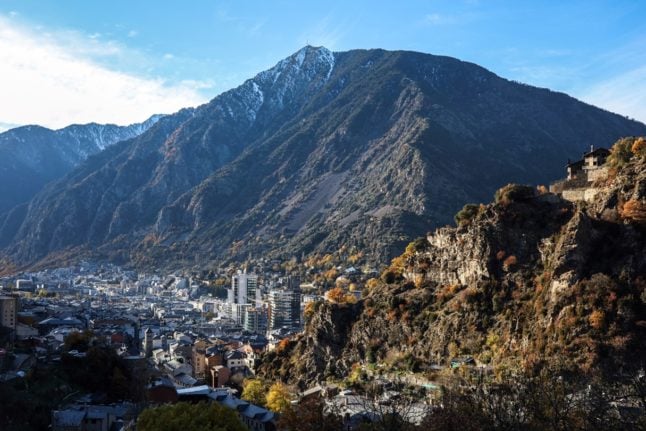Beware of grumpy old men. The veteran centrist politician, François Bayrou, 72, has plunged the government and the Macron presidency into deep crisis by refusing to serve in the government of a Prime Minister who is 38 years his junior.
Age, and reverse ageism, are not the only causes of this potentially disastrous split in the Macron coalition. In a deliberately destructive statement last night, Bayrou spoke of “profound disagreements” with the President and Prime Minister on government policy, especially education.
But Bayrou – who was education minister in 1993 when Attal was in first year of nursery school – is known to have been infuriated by Emmanuel Macron’s decision to appoint France’s youngest ever PM last month. He said privately that Macron was “mad” to think that such an inexperienced and Paris-centric politician could halt the country’s slide towards the Far Right.
Bayrou is irritating but important. He was a “Macronist” long before Macron – centrist and vehemently pro-European. He could have blocked Macron’s rise in 2017. He chose to support him.
Several meetings with Attal this week went badly. Bayrou, leader and founder of the pre-Macron centrist party Mouvement Democrat (Modem), wanted to dictate policy to the younger man. He wanted to deal directly with the President.
Government sources say that Bayrou was offered several senior posts in a second wave of appointments to the new government but he overplayed his hand.
He demanded a place near the top of the government hierarchy. He wanted several of his party colleagues to be given junior posts.
Worse, he wanted to abolish proposals for school reform already announced by Macron, such as experiments with uniforms and the streaming of children into “ability groups” in French and Maths.
Bayrou also seems to have overplayed his hand with his own party. At a meeting last night with the 51 deputies of Modem, he suggested that it might be time for them to pull out of the ruling centrist coalition.
This might force an early parliamentary election in which most of his colleagues would lose their seats and Marine Le Pen’s Rassemblement National – judging by recent polls – would become the biggest party in the National Assembly.
Many of the Modem deputies said they saw no sense in splitting the coalition and taking such a wild risk. They also complained that they had not been consulted by Bayrou before he detonated his attack on the President and Prime Minister.
On Thursday morning, Bayrou said in a radio interview that his party would remain “fully in the coalition”, even though he would be fully outside the government.
All the same, the crisis is real – the deepest coalition crisis which Macron has confronted.
Bayrou may have overplayed his hand but Macron and Attal also overplayed theirs. Bayrou is a veteran splitter who has often flounced out of alliances and divided his own party in the past.
It has been evident for several months that he felt marginalised and taken for granted. It would have been prudent to find ways of massaging his ego.
For the last seven years, after a brief stint as Macron’s first justice minister, Bayrou has been out of the government by his own choice. He was accused in 2017 of orchestrating a complex plot by his party to misuse European Parliament funds. He stood down until he could clear his name.
Several members of his party were found guilty by a Paris court early this week. Bayrou was cleared. He made it known that he was available to rejoin the government.
The timing seemed perfect. Attal was supposed only to be filling the junior posts left vacant when his cabinet was named last month.
But there was also a growing drumbeat, both inside and outside government, for the expulsion of the education minister, Amélie Oudéa-Castéra.
In her first week in office, she was caught out in a mistruth and provoked a teachers’ strike. When challenged about her decision to send her three sons to an elitist private school in Paris, she said that she had lost faith in the local state school because the teachers were often absent. That proved to be false.
Bayrou, it seemed, would be the ideal replacement – either as education minister or defence minister. The successful, young defence minister Sébastien Lecornu could be switched to education, which had been declared by Macron to be one of the key “building sites” of the remainder of his final term.
Negotiations began on Monday but dragged on and on.
Bayrou refused the defence ministry. He wanted education or regional development. But he also wanted a free hand to impose his own ideas.
Bayrou was once briefly a teacher as a young man. He objected to Macron’s plans for a “core knowledge” curriculum, ability streams for pupils in French and Maths according and school uniforms.
Reform of state education could only happen with the cooperation of teachers, he said. It could not be imposed on them.
That may be good sense. But the obstacle to school reform in France is not so much teachers as the institutional power of the teaching unions. That goes back to the mid-1990s when the education minister was a young man called…François Bayrou.
No deal was found with Attal. After Monday, Macron refused to get involved. The President turned up unannounced on Tuesday in a bar-tabac in Doubs near the Swiss border (after a meeting with local farmers).
Bayrou felt snubbed. On Wednesday night, he pulled the plug from a political grenade and tossed it into Macron and Attal’s desk.
The consequences could be profound.
Attal was appointed as an energetic, can-do PM who would short-circuit parliamentary obstacles and find ways of imposing policies attractive to the middle classes. His first task was to reduce the Far Right’s ten-point lead in the European election opinion polls.
In less than a month, he has faced two big crises. He negotiated his way out a potentially nasty farm crisis by allowing France’s most environmentally destructive farmers to carry on poisoning the land (and in many cases themselves).
Now voters find that their new, would-be purposeful Prime Minister is engaged in an ego-driven quarrel with another politician.
Worse, Bayrou’s public break with Macron is probably a prelude to a vanity run for the presidency. He will be 76 in April 2027 and his chances are close to zero. He could, however, split the centrist vote in the first round.
Cue, a big smile on the face of Marine Le Pen. Week after week, without her saying anything much (because she has nothing sensible to say), French politics has become a tragi-comedy scripted by and for the Far Right.



 Please whitelist us to continue reading.
Please whitelist us to continue reading.
Member comments